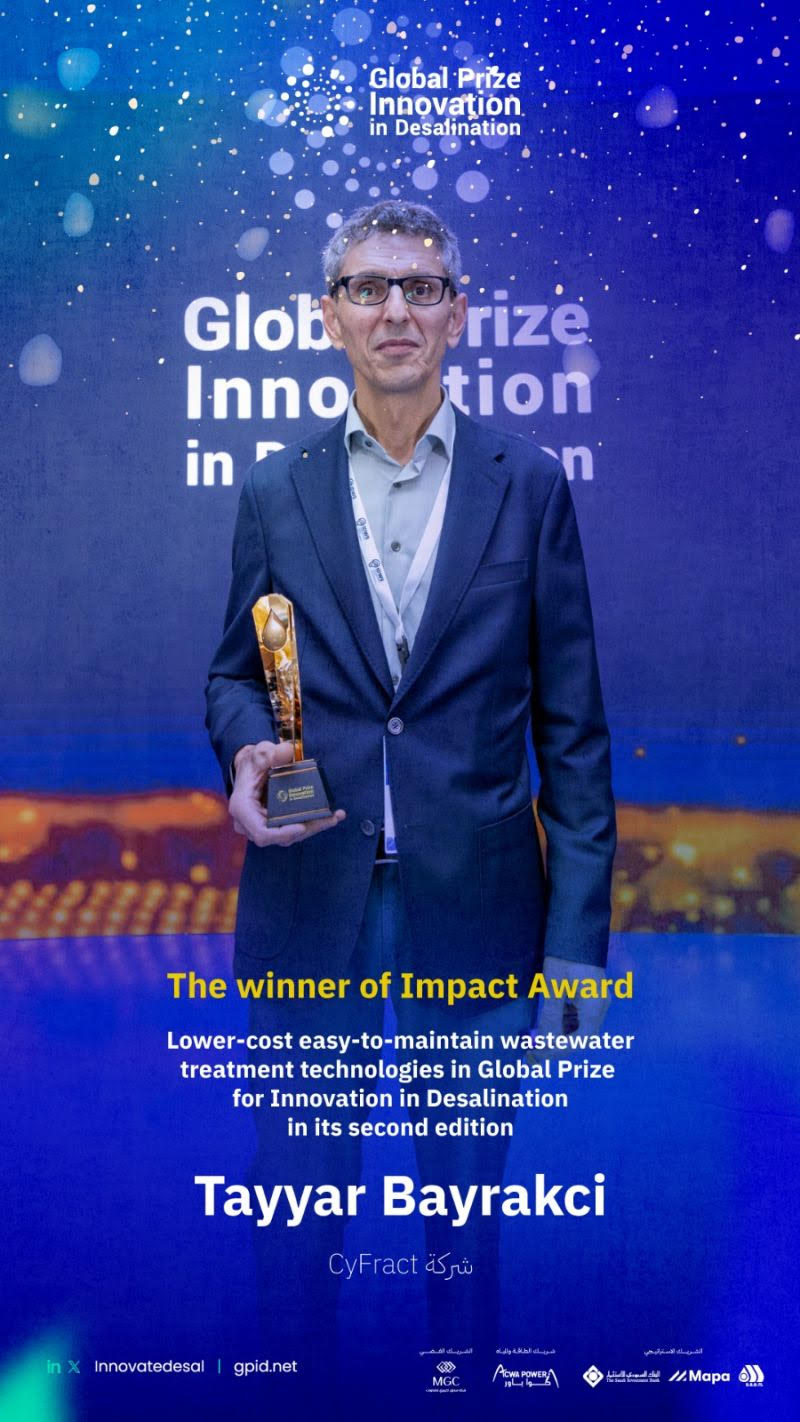The Global Prize Innovation in Desalination (GPID) has awarded more than SAR 10M in prize funding per year over a three-year period in the 2024 edition of its annual fund, recognising transformative solutions to global water scarcity. Through a series of crowdsourcing challenges, GPID sought groundbreaking ideas to improve water availability, affordability, and accessibility worldwide.
Entrepreneurs, start-ups, research bodies, scientists, accelerators, organisations, and experts submitted a total of 540 ideas, proof-of-concepts, and mature proposals around desalination. Overall, there were entries from 56 different countries and 80 universities or research institutions.
“The second year of the prize fund has met our greatest expectations, with some truly remarkable entries in responses to the Challenges we set,” said Dr. Mohammed Almaghrabi, Secretary General of the Global Prize for Innovation in Desalination (GPID). “Access to clean, affordable drinking water is a fundamental human right. This year’s winners have presented transformative solutions with the potential to create global change.”
The prize ceremony took place the 25th of November at the Ritz Hotel, Jeddah, Saudi Arabia and was opened by H.E. Eng. Abdullah Alabdulkareim.
21 organisations were listed as winners – two grand prizes, 12 impact awards and 7 as special mentions. The two grand prize winners were Nanyang Technological University in Singapore (Lee Nuang Sim), and NALA Membranes in the United States (Sue Mecham).
More than one-quarter of the world’s population faces challenges in accessing safe drinking water, and there has been an increase of 30% in the volume and severity of drought crises. 97% of the planet’s water is found in oceans, so desalination – a transformative process that uses technology to convert seawater into potable water – is crucial for overcoming freshwater scarcity.
Founded in 2023 by SWCC (Saline Water Conversion Corporation), now SWA (Saudi Water Authority), GPID is in its second year. SWA is one of the world’s largest producers of desalinated water, supplying 34 million people in Saudi Arabia and producing more than 20% of the world’s desalinated seawater.
The prizes focused on improving the environmental footprint of desalination processes, reducing energy consumption and operational costs, introducing new technologies and innovative business models in water, and providing scalable and sustainable solutions to meet global water needs.
Innovation scale-up Wazoku, was one of the organisation that helped bring applicants to GPID, providing its open innovation offering, the Wazoku Crowd. This consists of a 700,000-strong network of expert problem ‘Solvers’, comprised of scientists, technologists, CEOs, start-ups and more.
The GPID winners that came from the Wazoku Crowd were as follows:
Venture Capital Deal of the Year in Water Production
- Natural Ventures, The Netherlands – Maarten Ter Keurst
- MayMaan Research, United States – Mark Kriek
- Aquasolis, Norway – Øyvind Stenberg
Most Impactful Lab/Accelerator in Water Production
- Columbia University, Singapore – Ngai Yin Yip
Wastewater Solution
TRL 4-7 Impact Award – CyFract, Turkey – Tayyar Bayrakci
“I couldn’t be happier with the incredible solutions presented by the Wazoku Crowd,” said Schønning Eysturoy, Senior Director Innovation Ecosystems, Wazoku. “GPID is leading the way in water innovation and brings together a global ecosystems of innovators, industry partners and academia that will make the world more sustainable, habitable and improve the access to water. Next year the focus will broaden so I expect to see many more participant at the Global Prize Innovation in Water 2025”
In November, 32 shortlisted of the GPID applicants attended a three-day innovation driven water sustainability event in Jeddah, Saudi Arabia. The winning applicants were identified at this event and have been given the opportunity to take part in the Saudi Water Innovation Center (SWIC), a leading incubator and accelerator in this technology space.

